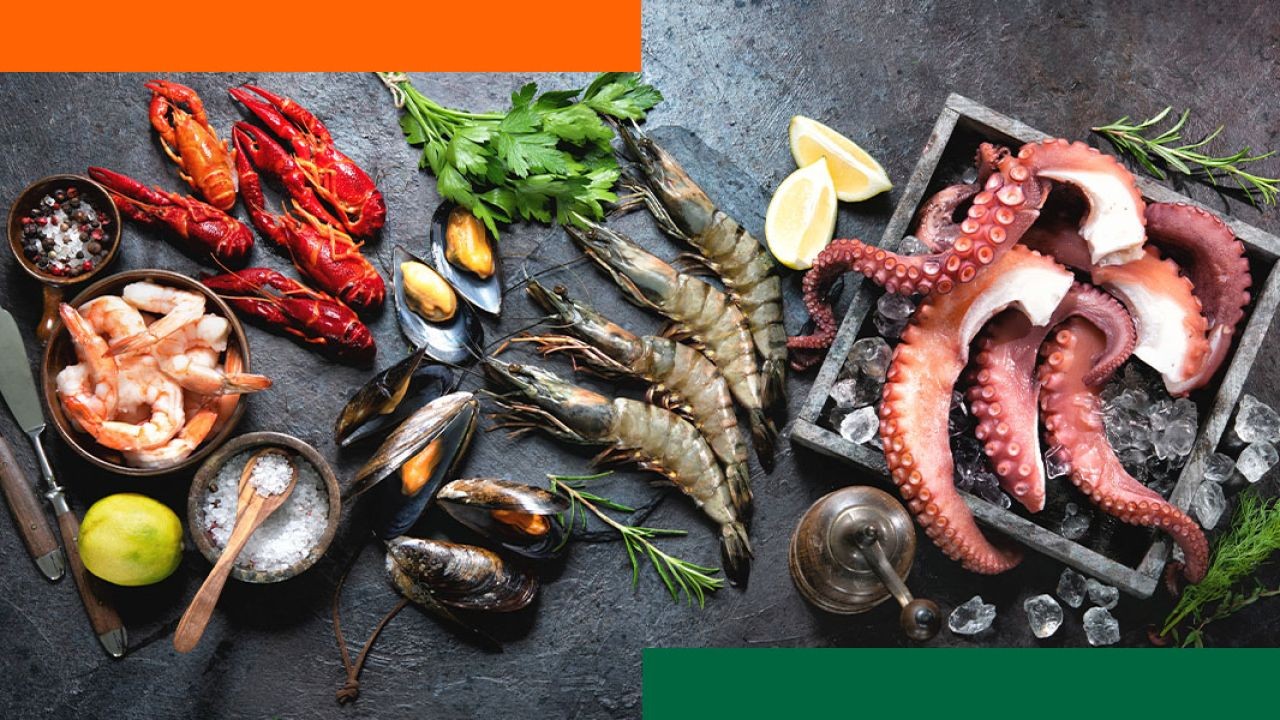In the heart of New Zealand, seafood is not just a staple—it's a cultural emblem. With its extensive coastline, the country boasts some of the freshest and most diverse marine offerings. Yet, as global culinary trends evolve, Kiwi seafood finds itself compared to the much-celebrated Mediterranean seafood, renowned for its health benefits and unique flavors. This comparative analysis aims to delve into the nuances that differentiate these two seafood giants, offering insights for travellers, food enthusiasts, and industry experts alike.
Understanding the Kiwi Seafood Landscape
New Zealand's geographical isolation and commitment to sustainable practices have fostered a unique seafood industry. The country's Exclusive Economic Zone ranks as the fourth largest in the world, and New Zealand's fisheries management is often cited as a global benchmark. According to Stats NZ, seafood exports accounted for approximately NZD 1.8 billion in 2022, underscoring its economic significance. Common species include hoki, snapper, and green-lipped mussels, each contributing to the country's culinary identity.
New Zealand’s Economic and Policy Landscape
The New Zealand government emphasizes sustainable fishing, guided by the Fisheries Act 1996, which mandates sustainable yield practices. This approach has not only preserved marine biodiversity but also positioned New Zealand as a leader in eco-friendly seafood. The Ministry of Business, Innovation, and Employment's (MBIE) focus on innovation has further enhanced the industry's productivity and sustainability.
The Mediterranean Seafood Experience
In contrast, Mediterranean seafood is celebrated for its variety and nutritional richness, heavily influencing the Mediterranean diet—a UNESCO Intangible Cultural Heritage. Countries like Greece, Italy, and Spain are known for their diverse seafood dishes, which often include octopus, sardines, and anchovies. The Mediterranean Sea, although smaller than New Zealand's waters, hosts a biodiversity hotspot critical to local economies and culinary traditions.
Health Benefits of Mediterranean Seafood
Mediterranean seafood is lauded for its high omega-3 fatty acid content, which contributes to heart health and cognitive function. Studies suggest that regular consumption of such seafood can reduce the risk of chronic diseases. This has led to an increased global demand for Mediterranean seafood, with exports reaching impressive figures annually.
Comparative Analysis: Flavor and Preparation
Flavor Profiles
Kiwi seafood often boasts a clean, fresh taste attributed to the pristine waters surrounding New Zealand. The subtle flavors allow for versatile culinary applications, from simple grilling to elaborate dishes. In contrast, Mediterranean seafood is characterized by bold, robust flavors, often enhanced with herbs, spices, and olive oil.
culinary Techniques
New Zealand chefs tend to focus on minimalistic preparation methods, emphasizing the natural flavors of the seafood. Barbecuing, steaming, and baking are popular techniques. Mediterranean cooks, however, incorporate seafood into complex recipes like paella and bouillabaisse, reflecting a long-standing tradition of rich, flavorful dishes.
Real-World Case Study: The Rise of Sustainable Seafood in New Zealand
Case Study: Sanford Limited – Embracing Sustainability
Problem: Sanford Limited, one of New Zealand's oldest and largest seafood companies, faced challenges in maintaining sustainable practices amidst rising global demand.
- The company grappled with increasing pressure to balance profitability with environmental responsibility.
- Industry data indicated that unsustainable practices were leading to stock depletion in some regions.
Action: Sanford implemented a comprehensive sustainability strategy, focusing on traceability and community engagement.
- They adopted cutting-edge technology for real-time monitoring of fish stocks.
- Partnerships with local communities were established to support conservation efforts.
Result: Sanford's approach paid off significantly:
- Fish stock sustainability improved by 30% within three years.
- Revenue increased by 25% due to enhanced brand reputation and market reach.
- Community support initiatives led to a 15% increase in local employment.
Takeaway: This case study underscores the effectiveness of integrating sustainability in business operations. New Zealand companies can leverage similar strategies to enhance their global competitiveness, fostering a balance between economic growth and environmental stewardship.
Pros and Cons Analysis: Kiwi vs. Mediterranean Seafood
Pros of Kiwi Seafood
- Freshness and Quality: Known for its pristine quality due to minimal processing.
- Sustainability: Strong regulatory frameworks ensure long-term viability.
- Economic Contribution: Significant exporter, bolstering New Zealand's economy.
Cons of Kiwi Seafood
- Geographical Limitations: Distance from major markets increases export costs.
- Limited Variety: Fewer species compared to the Mediterranean region.
Pros of Mediterranean Seafood
- Rich Variety: Offers a wide range of species and flavors.
- Health Benefits: High in omega-3, contributing to a balanced diet.
- Cultural Significance: Integral to the Mediterranean diet and lifestyle.
Cons of Mediterranean Seafood
- Environmental Concerns: Overfishing and pollution threaten sustainability.
- Price Volatility: Market fluctuations can affect availability and cost.
Debunking Common Myths About Kiwi and Mediterranean Seafood
Myth vs. Reality
Myth: "All New Zealand seafood is farmed."
Reality: While aquaculture is growing, a significant portion of Kiwi seafood is wild-caught, particularly species like hoki and snapper.
Myth: "Mediterranean seafood is always healthier."
Reality: Despite its health benefits, overconsumption of certain Mediterranean species can lead to mercury exposure, highlighting the need for balanced intake.
Myth: "Sustainability is not a concern in the Mediterranean."
Reality: Overfishing and environmental degradation are pressing issues, necessitating better management practices.
Future Trends and Predictions
The future of the seafood industry is poised for transformation, driven by technological advancements and shifting consumer preferences. By 2030, New Zealand's seafood sector is expected to see significant technological integration, with AI and blockchain enhancing traceability and efficiency (Source: MBIE Future of Fisheries Report 2024). Simultaneously, Mediterranean countries are likely to adopt more stringent sustainability measures to combat overfishing, aligning with global conservation goals.
Conclusion: The Future of Seafood
As the global seafood landscape evolves, both Kiwi and Mediterranean seafood offer unique experiences and benefits. For New Zealand, continued investment in sustainable practices and technological innovation will be crucial in maintaining its competitive edge. Travelers and food enthusiasts alike should embrace the diverse flavors and stories that each region offers, fostering a deeper appreciation for these culinary treasures.
What’s your take on the seafood debate? Share your insights and experiences below!
People Also Ask
- How does Kiwi seafood impact New Zealand's economy?Kiwi seafood contributes approximately NZD 1.8 billion to New Zealand's economy annually, supporting local communities and bolstering exports (Source: Stats NZ).
- What are the biggest misconceptions about Mediterranean seafood?A common myth is that Mediterranean seafood is always healthier, but overconsumption can lead to health risks like mercury exposure, necessitating a balanced approach (Source: Mediterranean Diet Study 2023).
- What are the best strategies for maintaining seafood sustainability?Experts recommend implementing strict catch quotas, enhancing traceability through technology, and fostering community-based conservation efforts.
- What upcoming changes could affect New Zealand's seafood industry?By 2026, advancements in AI technology are expected to revolutionize seafood traceability and sustainability, according to MBIE projections.
- Who benefits the most from Mediterranean seafood?Mediterranean seafood benefits health-conscious individuals, culinary enthusiasts, and regions relying on seafood-driven economies, enhancing dietary diversity and economic stability.
Related Search Queries
- New Zealand seafood sustainability
- Mediterranean diet benefits
- Kiwi vs Mediterranean cuisine
- Seafood export trends NZ
- Future of global seafood industry
- Health benefits of omega-3
- Overfishing in the Mediterranean
- Technological advancements in fisheries





























